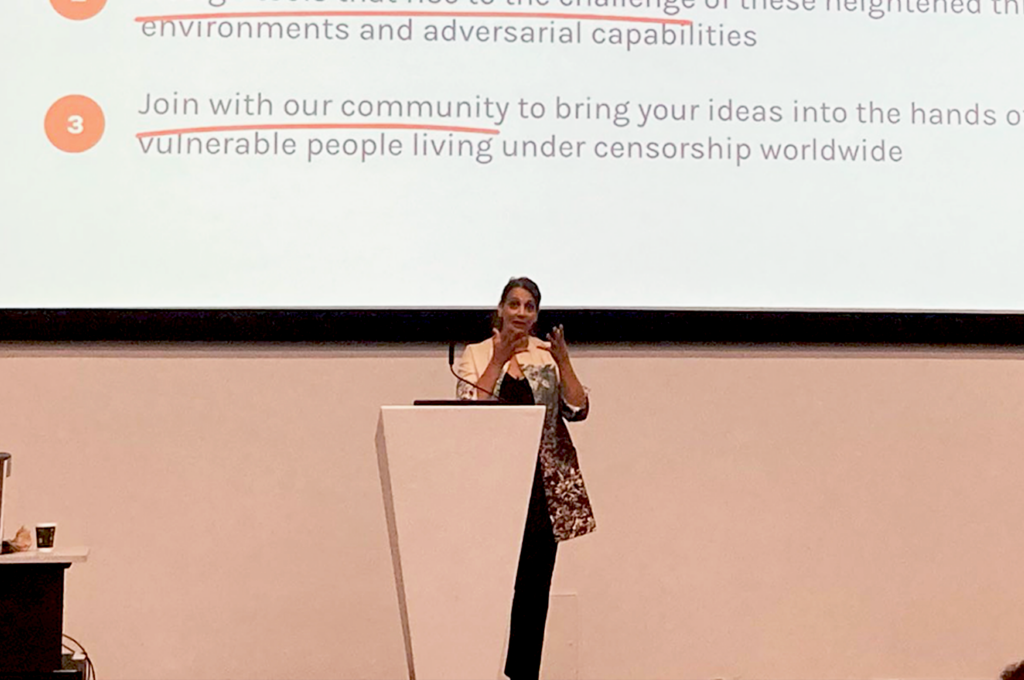Roya Ensafi delivers keynote at PETS 2024

Roya Ensafi, associate professor of computer science and engineering at the University of Michigan, gave the keynote address at the 2024 Privacy Enhancing Technologies Symposium (PETS), a leading conference in the privacy area. Delivered on Thursday, July 18 at the University of Bristol to hundreds of the world’s leading privacy experts, Ensafi’s lecture focused on the importance of developing new methods and technologies to preserve internet freedom.
In recent years, there has been significant growth in development and deployment of tools to hamper users’ internet freedom. The actors perpetrating these alarming tactics have likewise grown, spreading far beyond the countries we most often associate with such measures, such as Russia or China. In fact, as Ensafi reported in her lecture, in 2023 alone, there were 283 network shutdowns in 39 countries, representing a 41% increase over the previous year.
Combating such measures is no easy feat, however. Government actors have exponentially more resources at their disposal than the average internet user. According to Ensafi, this is where the scientific community has a responsibility to intervene by revealing and protecting against censorship and other freedom-limiting practices.
Ensafi has dedicated much of her research to building more effective technologies to detect and defend against such censorship measures, in the process safeguarding the privacy and freedom of internet users worldwide. In her keynote, she summarized the main thrusts of her work in this area, particularly her Censored Planet initiative.
Censored Planet is a global censorship observatory that aims to effectively and remotely monitor censorship and other forms of network interference. In her talk, Esnafi discussed the initiative’s progress so far and her team’s tireless work to develop censorship measurement tools using scalable, ethical, and multi-layer systems.
Through these efforts, Ensafi and her team have compiled and leveraged the world’s largest public censorship dataset to build powerful measurement tools. Their technologies have already revealed vital information about censorship practices used by government actors, such as in Russia, and the implications of these actions.
The Censored Planet team, in collaboration with Google Jigsaw, also has a free online dashboard that tracks domain blocking, network outages, and other censorship tactics by country, network, and more, giving users access to real-time information about whether and how their online freedoms are being curtailed. Google has published articles delving into the details Censored Planet’s work, including their efforts to make censorship data universally accessible and useful, as well as how censorship data has evolved with the cloud.
In addition to discussing her work in this space, Ensafi emphasized areas where more attention and effort are urgently needed. She highlighted the need for more circumvention tools that allow users to bypass blocks and outages, as well as more ways for providers to continue their operations amidst widespread censorship. Another important component of the fight for internet freedom is protecting users and providers alike from the potential risks of circumvention, including building trust between stakeholders.
In all, Ensafi’s keynote was an inspiring and informative overview of work being done to combat censorship and protect online users’ freedoms. You can view a recording of Ensafi’s full lecture (starts at 1:06:10).
 MENU
MENU